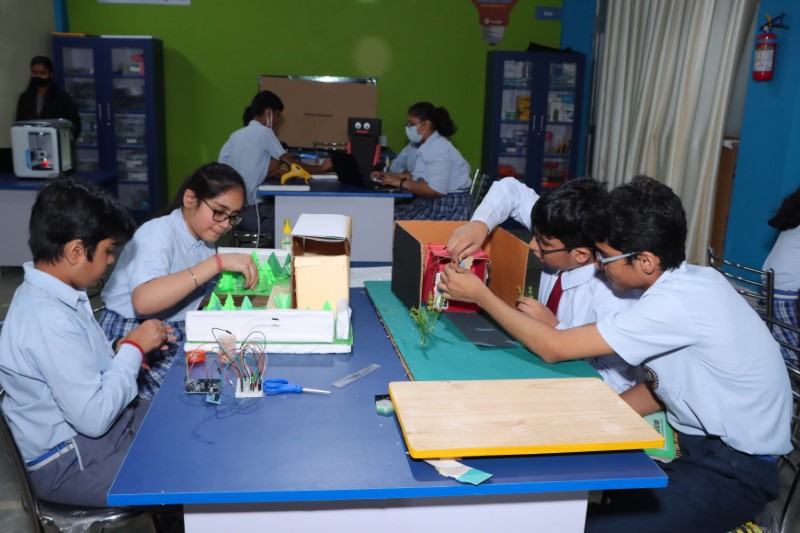The first day of school is a big moment—for your child and for you. It’s a mix of excitement, nerves, and new beginnings. As a parent, you can make it smoother and happier with a little preparation. Here are some simple, practical tips to help your child step into school ready and eager.

Talk About It Early
Start chatting about school before the day arrives. Keep it light—tell them it’s a place to make friends, play, and learn fun things. Share a story from your own school days, like a favorite game or a kind teacher. If they ask questions, answer honestly but cheerfully. “Will I be alone?” can turn into, “No, you’ll meet lots of kids just like you!” This builds a picture in their mind that’s warm, not scary.
Visit the School Together
If you can, take a trip to the school beforehand. Walk around the playground, peek at the classrooms, or point out the colorful walls. Let them touch the gate or sit on a bench. Seeing the place makes it less strange. If there’s an open day or orientation, go along—meeting a teacher or spotting a cubby with their name can spark excitement. Familiarity cuts down the jitters.
Practice the Routine
School means a new rhythm, so ease them into it. A week or two before, set a bedtime and wake-up time like the school day’s. Get them used to dressing quick—buttoning a shirt or tying shoes. Pack a snack together and pretend it’s for school, showing them how to open it. If they’ll ride a bus or walk, do a dry run. Little rehearsals make the real day feel like something they already know.
Pack Smart, Pack Simple
Get their bag ready with them. Pick a backpack they like, and keep it light—water bottle, lunchbox, maybe a small toy if allowed. Label everything with their name so nothing gets lost. Show them where snacks go and how to zip it up. A familiar thing, like a favorite pencil or a family photo, can feel like a hug from home. Keep it easy so they’re not fumbling on day one.
Build Independence
School asks kids to do some things solo, so practice now. Teach them to wash hands, wipe their nose, or ask for help with clear words like, “Can you help me, please?” If they’ll eat alone, let them try at home—open a container, use a spoon. Small wins—like pulling on socks—boost their “I can do it” vibe. They’ll walk in feeling big, not helpless.
Make Goodbyes Sweet
The drop-off can tug at your heart—and theirs. Plan a quick, happy goodbye. Say something like, “Have fun, I’ll see you soon!” with a hug or a wave. Don’t linger; a fast exit shows you trust they’ll be fine. If they cling, stay calm—tears are normal and usually fade fast once you’re gone. Have a pick-up plan they know, like, “I’ll be by the tree,” so they feel secure all day.
Dress for Comfort
Pick clothes they love and can move in—soft shoes, easy pants, a shirt that’s not fussy. Test it out—can they run or sit without tugging? If there’s a uniform, let them wear it around home to break it in. Add a sweater if it’s chilly, and skip tricky buttons or laces if they’re still learning. Comfort keeps them focused on fun, not fuss.
Celebrate the Day Before
Make the night before special. Cook their favorite meal or read a school-themed book together. Lay out their outfit and bag so morning’s smooth. Talk up the adventure—“Tomorrow you get to explore!”—and let them share how they feel. A little hype sets a positive tone, turning nerves into buzz.
Watch for Worries
Some kids breeze in; others fret. Look for signs—quietness, clinginess, or “I don’t want to go.” Don’t brush it off—ask gentle questions like, “What’s on your mind?” Reassure them with specifics: “Your teacher’s nice, and there’s a sandbox!” Keep your cool even if you’re nervous too—your steady voice helps them feel safe.
Plan a Happy Reunion
After school, be there with a smile. Ask open stuff—“What made you laugh today?”—not just “Was it good?” They might spill stories or stay quiet; both are fine. A small treat—like a snack or park time—caps the day with joy. It tells them school leads to good things, not just goodbyes.
Why This Helps
Preparing your child for their first day isn’t about perfection—it’s about peace. These steps build a bridge from home to school, making it less of a leap. They’ll stumble, sure, but with your support, they’ll find their feet. And you’ll both look back on that first day not as a worry, but as a win.

